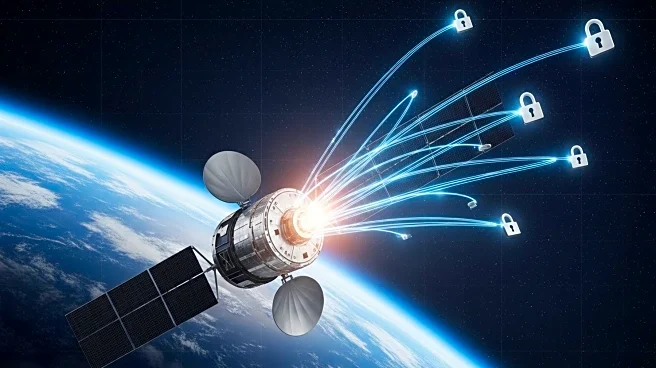What is the story about?
What's Happening?
Security researchers from UC San Diego and the University of Maryland have discovered that many geostationary satellites are transmitting unencrypted sensitive data, including consumer, corporate, and military information. Using an off-the-shelf satellite receiver, the researchers found unencrypted data such as private voice calls, text messages, and internet traffic from in-flight Wi-Fi services. The exposure also includes communications between critical infrastructure systems, such as energy and water suppliers. While some organizations have begun encrypting their data following the researchers' alerts, significant amounts of satellite data remain exposed.
Why It's Important?
The exposure of unencrypted satellite data poses significant security risks, potentially allowing unauthorized access to sensitive information. This discovery highlights vulnerabilities in satellite communications that could be exploited by malicious actors. The affected data includes critical infrastructure communications, raising concerns about the potential impact on national security and public safety. The findings underscore the need for improved encryption practices and heightened awareness of satellite communication security.
What's Next?
Organizations affected by the exposure are expected to take steps to encrypt their data to prevent future eavesdropping. The researchers' findings may prompt regulatory bodies to review and update security standards for satellite communications. Additionally, the discovery could lead to increased scrutiny of satellite operators and their data protection practices. The situation calls for ongoing monitoring and collaboration between researchers, industry stakeholders, and government agencies to address the vulnerabilities.















